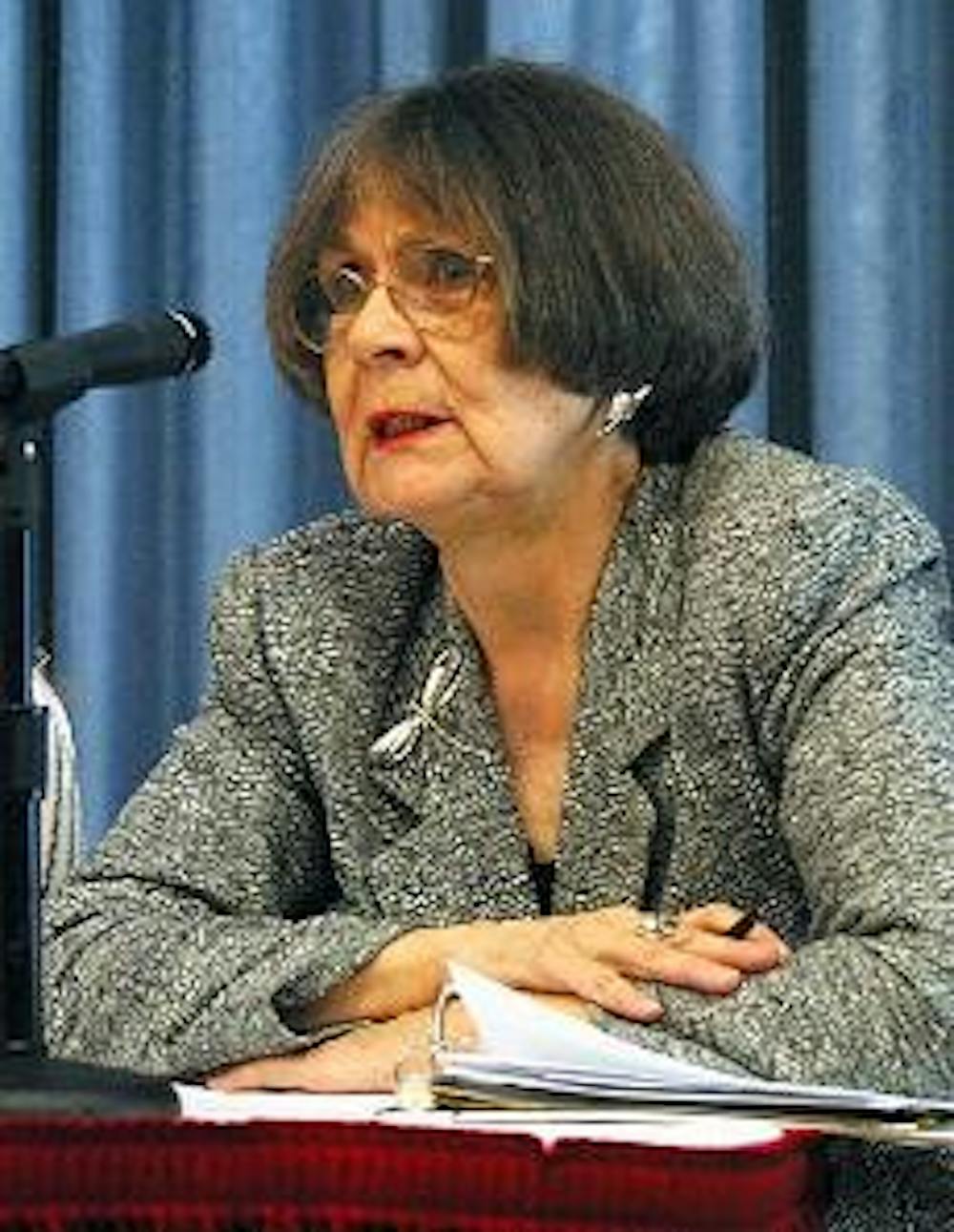Human trafficking has been a problem since the beginning of slavery, while punishment for trafficking only began in the 20th century, according to Yelena Varpakhovskaya, chair of criminal law and criminology at Irkutsk Prosecutors' Training Institute and one of six panelists who participated in a discussion Wednesday in Mary Graydon Center about human trafficking in Russia.
The discussion, organized by AU's Terrorism, Transnational Crime and Corruption Center, focused on the legal aspects of human trafficking, including the difficulties faced in developing and implementing anti-trafficking legislation. Members of the panel are a part of a long-term exchange program called Open World, which, according to its Web site, "enables emerging leaders from Russia and other Eurasian countries to experience American democracy and civil society in action."
According to Olga Lukyanova, a legal assistant, Russia has in recent years become a more open society with a greater number of migrants both leaving and entering the country. This openness, while a positive step for the country, has led to problems, including the migration and exploitation of women, children and the unemployed.
"The government is concerned about the growth of trafficking and the growth of organizations who profit from it ... but they did not begin to pay attention to the problem until the late '90s," Lukyanova said.
In 1997, Lukyanova said, Russia became a part of the United Nations' organization against human trafficking, and in 2003, Russia passed a law that declared human trafficking to be a criminal offense.
Tatyana Sudakova, associate professor of criminology at Baikal State University of Economics and Law, emphasized the important role that the legal field plays in solving the problem of human trafficking. However, she said, the implementation of new laws is a difficult process.
"This is something new for Russia," Sudakova said. "Anything new brings problems, and putting it into effect is tied to great difficulty."
Varpakhovskaya said one problem linked with putting the law into effect is that of identifying the victims who often do not come forward or try to hide the crime. Other difficulties mentioned by Varpakhovskaya and other members of the panel include a lengthy pre-trial period that can sometimes last years, strict procedures for the use of evidence and the imbalance between the rights of the victim and the accused.
According to Varpakhovskaya, while the accused has a right to council, the victim has no such right, leaving them underrepresented in a trial.
"The victim is given only one or two rights, while the accused is given many," she said.
Varpakhovskaya proposed the creation of one international standard that would define the rights of victims. Changes are needed in the legislation in order to shorten the pre-trial period and make it easier for crucial evidence to be considered, she said.
Erica Snyder, a sophomore in the School of Public Affairs, said she was surprised at the occurrence of trafficking in Russia and did not realize "how difficult it is to protect the victim and the role that corruption can play."
Irina Abakumova, a psychologist and representative from the Southern Russia Foundation for Encouraging Tolerance and Combating Extremism, is part of an effort to help victims of human trafficking to heal psychologically.
"Victims of both sexual and labor exploitation need psychological help. ... Some receive immediate help, but research shows that most need long-term care due to post-traumatic symptoms," Abakumova said.





